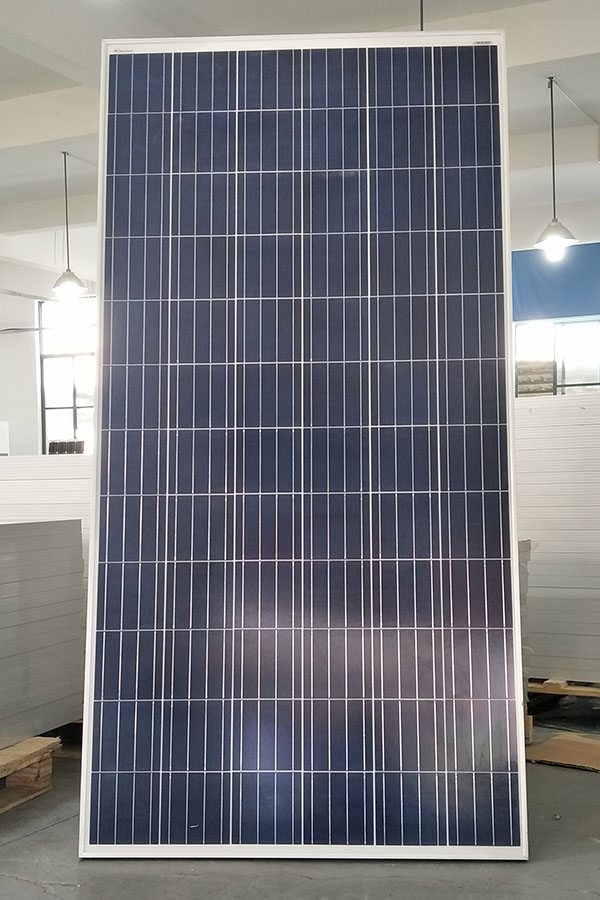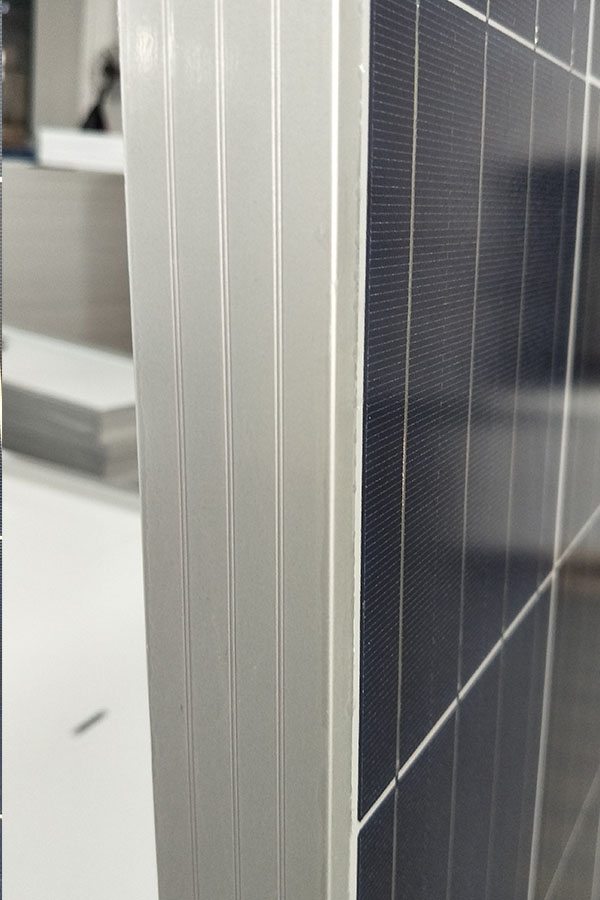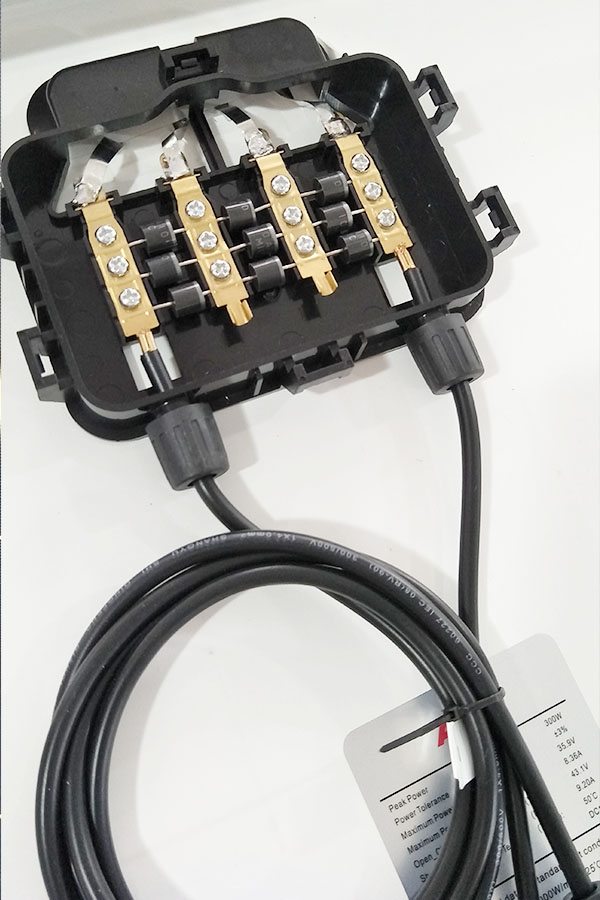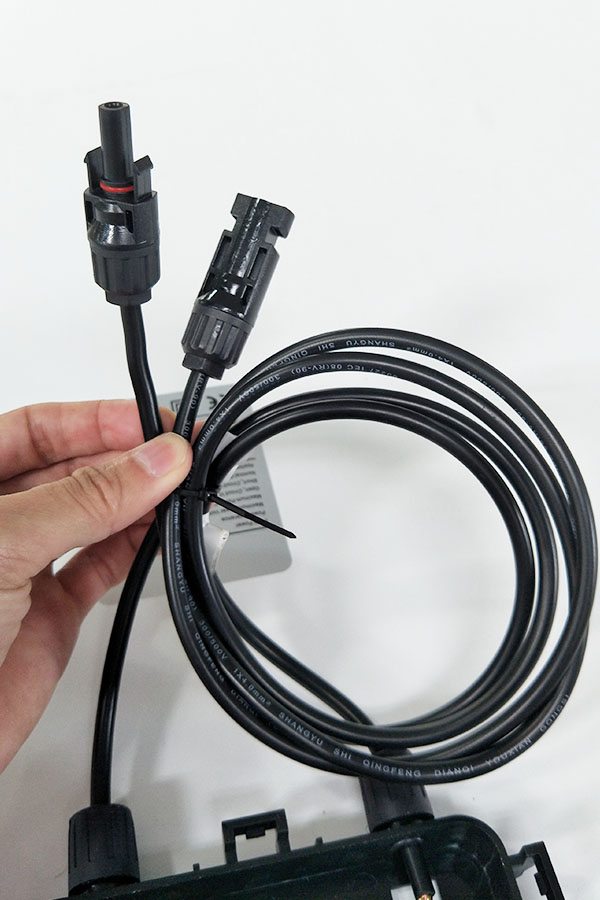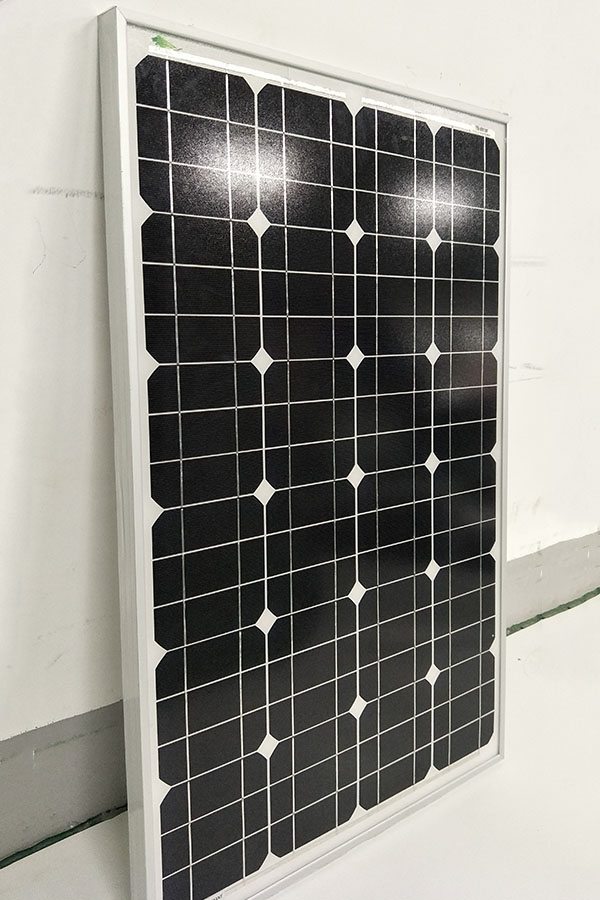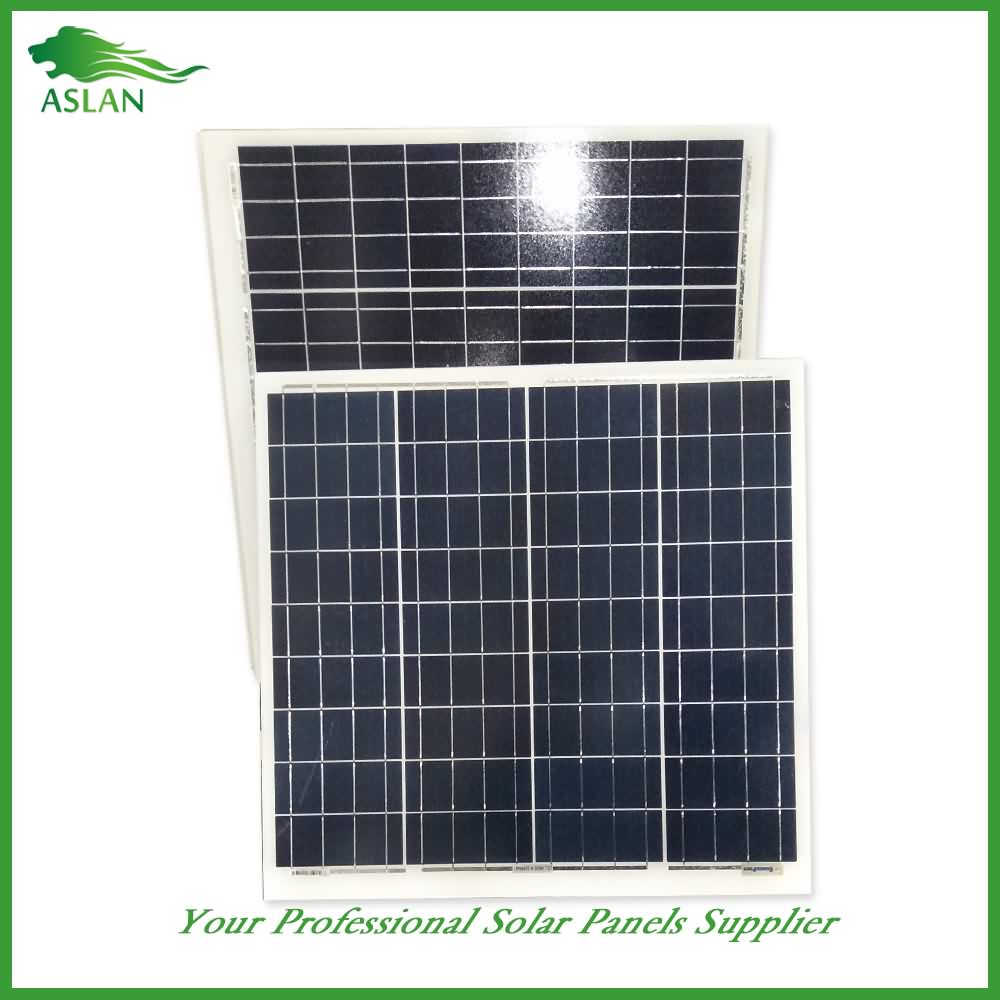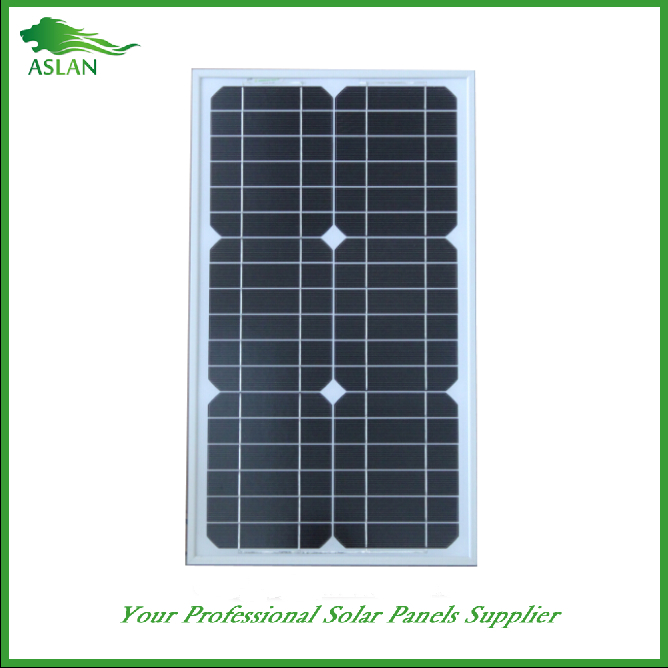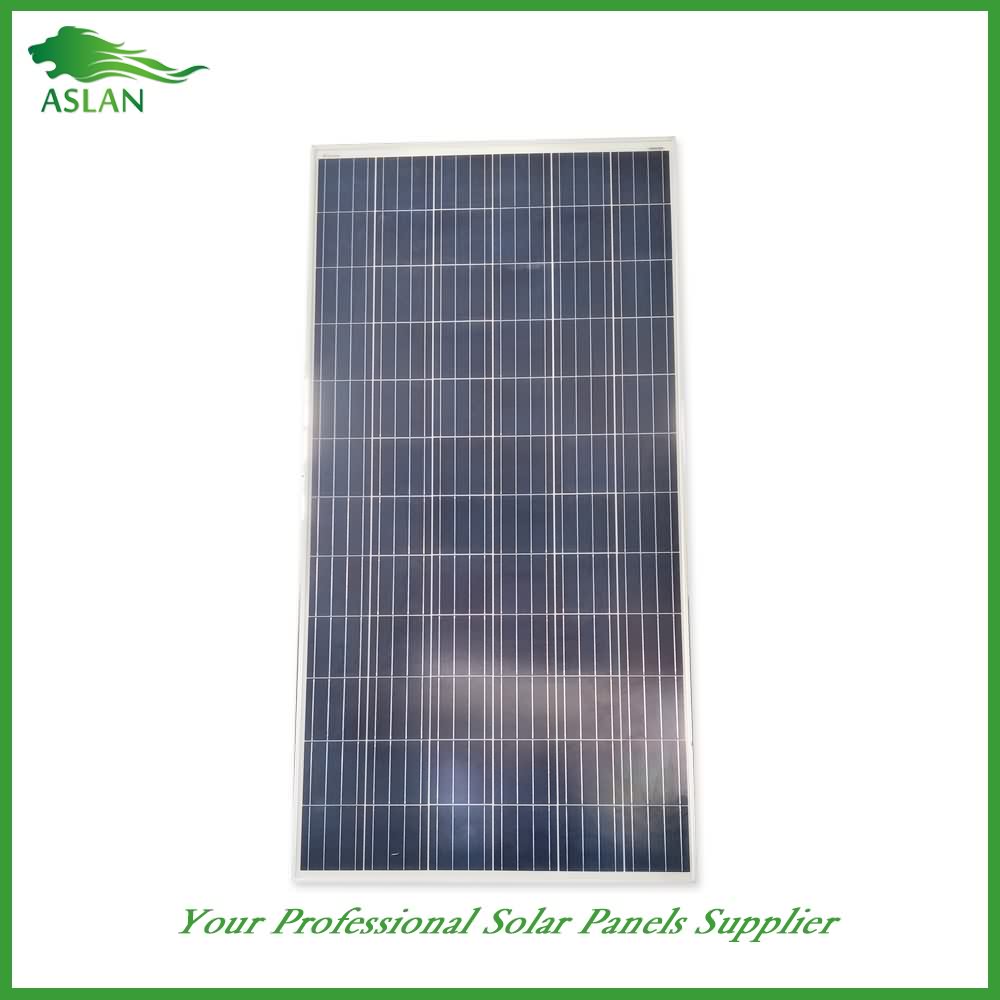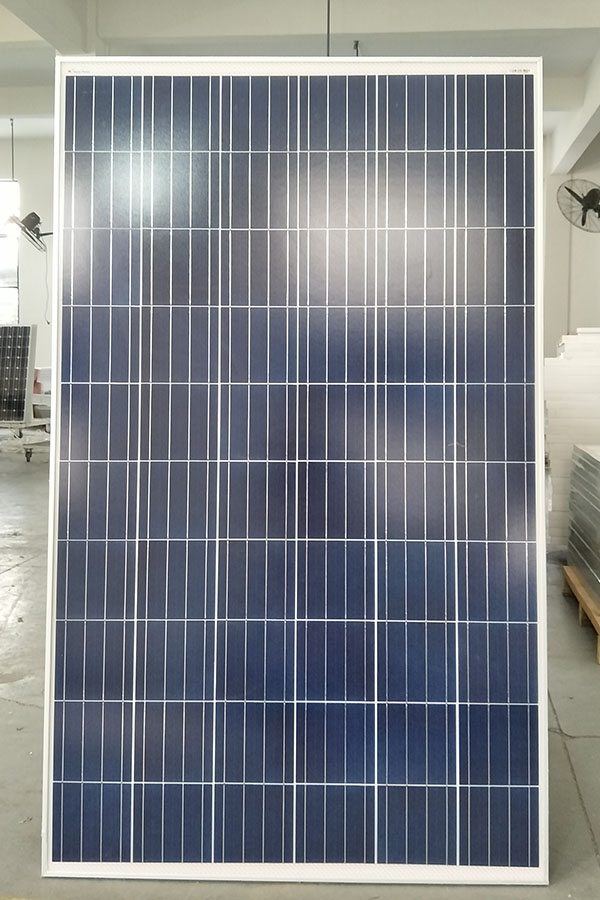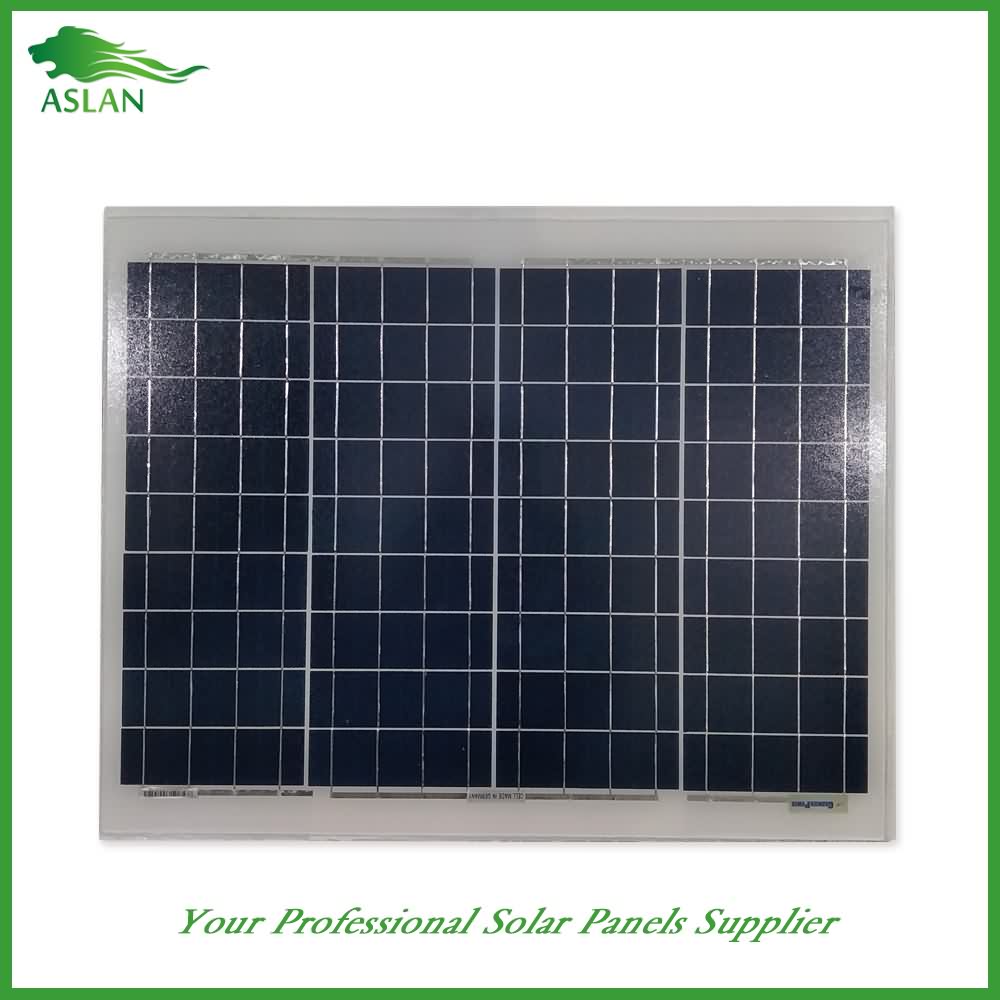Top Suppliers Poly-crystalline Solar Panel 300W in Nicaragua
Short Description:
"Sincerity, Innovation, Rigorousness, and Efficiency" is the persistent conception of our company for the long-term to develop together with customers for mutual reciprocity and mutual benefit for Top Suppliers Poly-crystalline Solar Panel 300W in Nicaragua, We welcome new and old customers to contact us by phone or send us inquiries by mail for future business relationships and achieving mutual success.
Poly-crystalline Solar Panel 300W
Technical parameter
Maximum Power(W) 300W
Optimum Power Voltage(Vmp) 37.15V
Optimum Operating Current(Imp) 8.08A
Open Circuit Voltage(Voc) 45.30V
Short Circuit Current(Isc) 8.87A
Mechanical Characteristics
Cell Type Poly-crystalline 156x156mm (6 inch)
No of Cell 72 (6x12pcs)
Dimensions 1956x992x50mm
Weight 22.5Kg
Front Glass 3.2mm,High Transmission, Low Iron,Tempered Glass
Junction box IP65 Rated
Output Cable TUV 1×4.0mm2/UL12AWG,Length:900mm
Temperature and Coefficients
Operating Temperature(°C): -40°C ~ + 85°C
Maximum System Voltage: 600V(UL)/1000V(IEC) DC
Maximum Rated Current Series: 15A
Temperature Coefficients of Pmax: -0.47%
Temperature Coefficients of Voc: -0.389%
Temperature Coefficients of Isc: 0.057%
Nominal Operationg Cell Temperature (NOCT): 47+/-2°C
Materials of solar panel
1).Solar Cell——Poly-crystalline solar cell 156*156mm
2).Front Glass——-3.2mm, high transmission, low iron, tempered glass
3).EVA——-excellent anti-aging EVA
4).TPT——-TPT hot seal made of flame resistance
5).Frame——anodized aluminum profile
6).Junction Box——-IP65 rated, high quality, with diode protection
Superiority: high quality anodized aluminum frame, high efficiency long life, easy installation, strong wind resistance, strong hail resistance.
Features
1. High cell efficiency with quality silicon materials for long term output stability
2. Strictly quality control ensure the stability and reliability, totally 23 QC procedures
3. High transmittance low iron tempered glass with enhanced stiffness and impact resistance
4. Both Poly-crystalline and Mono-crystalline
5. Excellent performance in harsh weather
6. Outstanding electrical performance under high temperature and low irradiance
Quality assurance testing
Thermal cycling test
Thermal shock test
Thermal/Freezing and high humidity cycling test
Electrical isolation test
Hail impact test
Mechanical, wind and twist loading test
Salt mist test
Light and water-exposure test
Moist carbon dioxide/sulphur dioxide
This is a very simple Audio Amplifier for laptop and mobile phones. and very easy to make at home. it can be operated at 12V-DC to 24V-DC. you can make it portable by using rechargeable batteries. this circuit is for mono application. if you want stereo, just make an other circuit same like this and connect it with this in parallel by combining both ground wires. please like, share & subscribe…
enjoy!
PCB MAKING PROCEDURE:
MINI DRILL MACHINE FOR MAKING HOLES:
You gotta love Trump’s sense of humor
When I first heard about Donald Trump’s solar-powered border wall, I really thought it was a joke.
Question: “So how did Trump sell the idea of a border wall to ‘progressives’?” Answer: “By covering the wall with solar panels.”
But it turns out it’s no joke. It’s just an example of Trump’s political instincts as well as his entrepreneurial business acumen as one of the premier builders in the world. Think about it. He made a campaign promise to build the border wall. It may have been the No. 1 reason he was elected president. He pledged that Mexico would pay for it. We all collectively scratched our heads wondering how he would accomplish that. And here it is! He’s going to produce electricity with the border wall and, no doubt, sell it to Mexico for many decades to come. Genius! Who could have guessed? And who would oppose the idea? After all, this would be one of the biggest experiments in the development and production of solar power in the history of the world. And who are the biggest advocates of solar power? The same people who are adamantly opposed to the border wall project. But he didn’t pitch it to Democrats. He pitched it to Republicans who control Congress. The plan was actually the brainchild of Thomas Gleason, managing partner of Gleason Partners LLC, a Las Vegas-based architecture firm that submitted a proposal to the Department of Homeland Security that included solar panels. He had been batting around the idea of building a solar-paneled wall along the U.S.-Mexico border “for months.” Then he directed his company to come up with a design and “get it in front” of the president after the DHS requested proposals. Trump recognized the political and financial potential. The wall would generate enough power to pay for its construction in less than 20 years, Gleason believes. But he cautioned that numerous variables – the Mexican border is far from a straight line and light intensity changes from month-to-month – could complicate his calculations. He said his firm hasn’t received the go-ahead from the federal government to conduct a full evaluation. Gleason said his estimate is predicated on the cost of manufacturing solar panels decreasing over time. The price of installing solar panels has dropped from around $8 per watt in 2009 to $1.50 per watt in 2016, according to the Solar Energy Industries Association. Gleason said he believes that farmers on both sides of the border would appreciate the wall, as the energy output would create a “microgrid” that could provide cheap power to remote areas on the border underserved by energy utilities. “We’d be our own utility,” Gleason said, though he said third-party contractors would need to actively manage the wall, per the DHS request. He said the cheap, renewable electricity produced by the wall should “mitigate” political resistance over time, and increase property values along the border. “Our intent is to offer a realistic, no-nonsense design for the wall that pays for itself that will make everybody happy, including our president,” Gleason said. In the pitch process this spring, at least two companies proposed designs that included solar panels. After being rebuffed by Congress for money to build any wall in fiscal year 2017, the administration has asked appropriators for $1.6 billion to build 74 miles in 2018, according to DHS: 32 miles of wall in the Rio Grande Valley, 28 miles for levee wall in the Rio Grande Valley and 14 miles of replacement for secondary fencing in San Diego. Border Patrol agents love the idea of a transparent wall so they can see what’s happening on the other side. That’s another reason the “solar wall” could serve two important purposes. You gotta love this guy. Build the wall!
The narration of this article does not constitute an endorsement of its contents or point of view, by this channel. Our viewers and subscribers are encouraged to draw their own conclusions.
